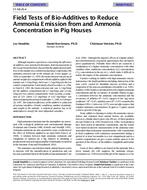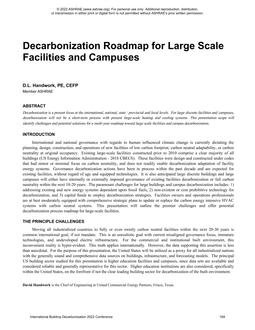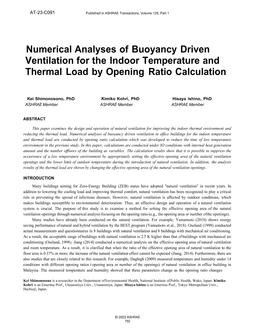
SF-98-26-4 — Field Tests of Bio-Additives to Reduce Ammonia Emission from and Ammonia Concentration in Pig Houses
Although negative experiences concerning the efficiency of additives were reported in literature, field measurements in the research reported here showed that the application of additives to the manure in a commercial pig house could reduce the ammonia emission rate in the exhaust air. From August 12, 1994, to September 15, 1995, the mean emission rate per kg of animal weight of a compartment with the additive added to the manure was 5.8 mg/(h•kg), but it was 7.2 mg/(h•kg) for the two control compartments. Particularly, from December 14, 1994, to March 9, 1995, the mean emission rate was 3.2 mg/(h•kg) for the additive compartment but 6.7 mg/(h•kg) and 5.9 mg/(h•kg) for two control compartments. More recently, a reduction of 51% (from 3.32 mg/(h•kg) to 6.62 mg/(h•kg)) was observed during the period of September 1, 1996, to February 28, 1997. The reduction efficiency of the additive is a function of various variables: climatic conditions, number of animals, and weight of the animals. A statistical analysis has to be undertaken to classify the most influential variables.
Units: Dual
Citation: Symposium, ASHRAE Transactions, 1998, Vol 104, pt. 1A, San Francisco
Product Details
- Published:
- 1998
- Number of Pages:
- 8
- File Size:
- 1 file , 270 KB
- Product Code(s):
- D-7937


